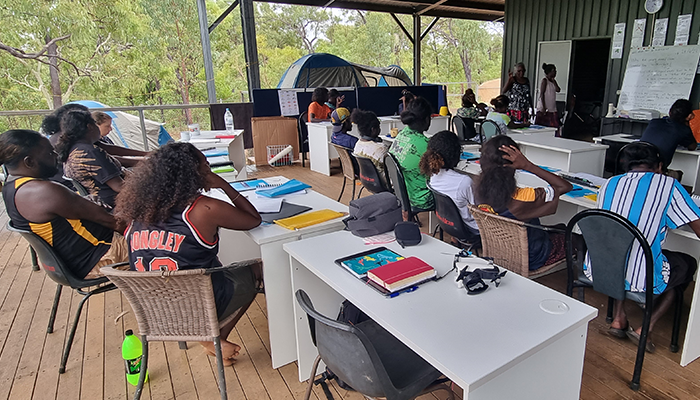- 10 extraordinary athletes will kitesurf Australia’s Great Barrier Reef to raise funds to find a cure for the devastating and fatal Motor Neurone Disease (MND or ALS)
- The Guinness World Records attempt will see the ten kitesurfers cover 1,000km over 10 days starting 10August 2015. Each member of the team which includes one of the Macquarie University MND research scientists along with pro-kitesurfers Jesse Richman (Hawaii), Susi Mai (Dominican Republic) and Greg Norman Jr.(Florida) – will undertake seven hours of grueling physical activity every day for 10 days
- MND is a progressive, terminal neurological disease. MND has no treatment or cure (MND is more commonly known as ALS in the US)[i]
Macquarie University MND Research Centre today encourages the public to get behind an epic physical challenge called Kite The Reef to raise funds to help find a cure for Motor Neurone Disease.
Kite The Reef which begins on 10 August 2015, is expected to attract worldwide attention as the team of kitesurfers attempt to cover 1,000km over 10 days and break the current kitesurfing world record.
The Macquarie University MND Research Centre is Australia’s first, and largest, research centre – with a group of international scientists dedicated to finding a cure for the disease MND (also known as ALS).
MND is one of the cruelest illnesses with no current cure or effective treatment. It quickly robs people of their ability to walk, speak, swallow and breathe, striking at random and at anytime[ii].
Shockingly, the average life expectancy after diagnosis is just 27 months1. The number of cases of MND continues to increase, having risen by 250% in the last 20 years[iii].
The Kite The Reef expedition was founded by Dr. Nick Cole and Alex Unsworth, along with fellow kitesurfer Richard Hatherall.
The project has been made possible through a combination of self-funding from the kitesurfers themselves and corporate sponsorship.
Global travel search engine, Skyscanner has come on board as the lead expedition sponsor. Skyscanner has contributed significant funds towards the cost of the expedition to help ensure that 100% of public donations go directly to the Macquarie University MND Research Centre itself. A number of other organisations and people have been impressed with the clarity of the MND research work - and have got behind the cause and contributed materially including MyNetFone, Freelancer, CanaccordGenuity, Blade Kiteboarding, AXIS Kiteboarding and Ross Miller at Aroona.
“We see many patients first-hand in the MND Research Centre and know how utterly devastating MND is for them and their families,” said Dr. Cole. “The Kite The Reef challenge will be hugely demanding on the team – equivalent to two marathons each day for ten days – but it is nothing compared to the hardship that MND patients face. That is the motivation behind establishing the event and what will drive us all to break the world record to raise much-needed funds for our vital research to continue.”
There is no clear explanation as to why and how the paralysing disease develops, emphasising the need for research funding to fully understand the biological basis of the disease. This is a key priority area for the Macquarie University MND Research Centre, which has already achieved some internationally ground-breaking research on MND[iv],[v],[vi],[vii],[viii],[ix] having made and collaborated in several significant genetic findingsthat will now help to better explain some of the causes of the disease.
MND is the same disease behind last year’s ‘ALS Ice Bucket Challenge’, but despite its global success, many people are still not aware than MND and ALS are the same disease.
Adam Regal was diagnosed with the disease and is one of the MND patients at the Macquarie University Clinic.
“When you are diagnosed with MND, time is imperative,” said Adam. “Time to walk on your own, to speak for yourself, to see your children grow up and to ultimately make memories. It is only through research that more time will be possible for MND patients like myself. That is why it is so important that the work of the Macquarie University MND Research Centre continues and that the public gets behind the Kite The Reef challenge to raise funds to find that cure.”
For further details on the challenge and to make a donation, visit www.kitethereef.org
[i] MND Australia website. Facts and Figures. Available at: http://www.mndaust.asn.au/Get-informed/What-is-MND/Facts-and-figures.aspx. Date accessed: July 2015.
[ii] MND Australia. Motor Neurone Disease: More Facts. Available at: http://www.mndaust.asn.au/Get-informed/Information-resources/Facts_about_MND/More-Facts-2011-web.aspx. Date accessed: July 2015.
[iii] MND Australia website. MND Death Statistics. Available at: http://www.mndaust.asn.au/Discover-our-research/For-researchers/Statistics.aspx. Date accessed: July 2015.
[iv] Williams KL et al. 2012. UBQLN2/ubiquilin 2 mutation and pathology in familial amyotrophic lateral sclerosis. Neurobiology of Aging: 33(10):2527.e3-10.
[v] Dobson-Stone C et al. 2013. Frontotemporal dementia-amyotrophic lateral sclerosis syndrome locus on chromosome 16p12.1-q12.2: genetic, clinical and neuropathological analysis. Acta Neuropathologica: (4):523-33.
[vi] Chesi A et al. 2013. Exome sequencing to identify de novo mutations in sporadic ALS trios. Nature Neuroscience: 16(7):851-5.
[vii] Takahashi Y et al. 2013. ERBB4 mutations that disrupt the neuregulin-ErbB4 pathway cause amyotrophic lateral sclerosis type 19. The American Journal of Human Genetics: 93(5):900-5.
[viii] Smith BN et al. 2014. Exome-wide rare variant analysis identifies TUBA4A mutations associated with familial ALS. Neuron: 84(2):324-31.
[ix] Cirulli ET et al. 2015. Exome sequencing in amyotrophic lateral sclerosis identifies risk genes and pathways. Science: 347(6229):1436-41.



